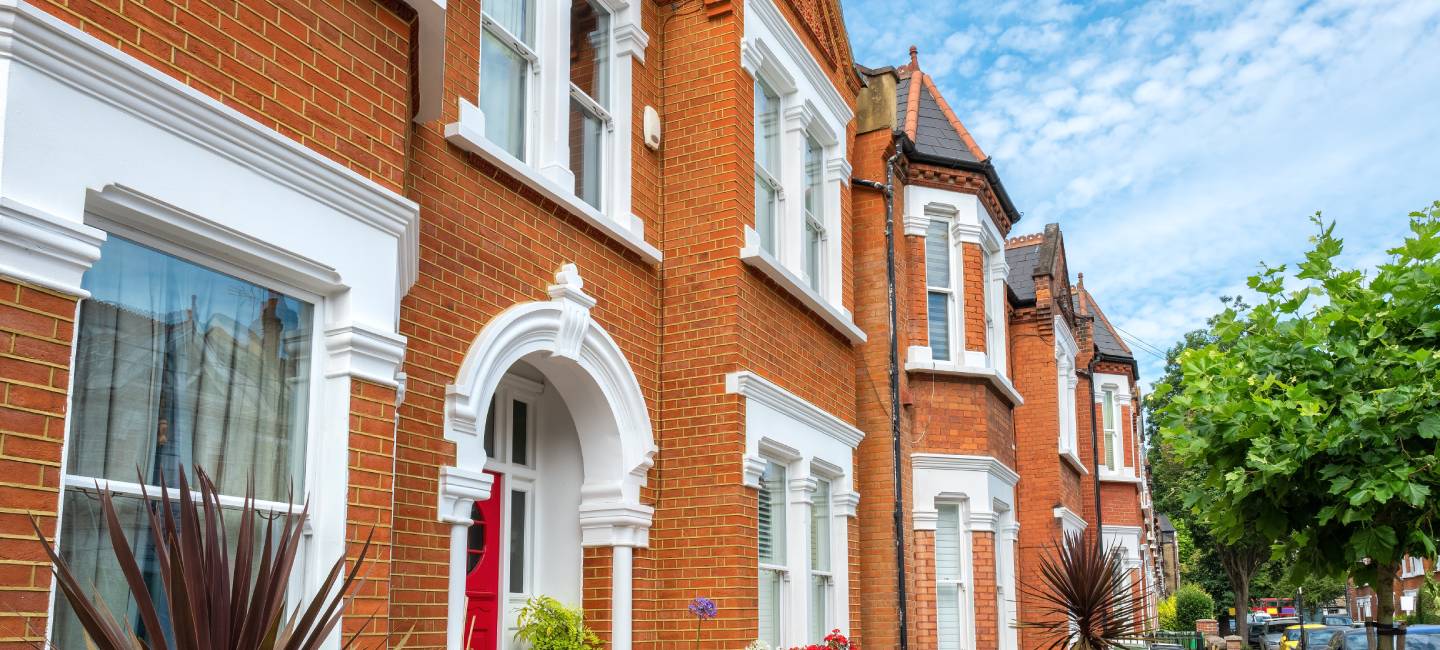

UK house prices are predicted to rise in 2025 – but at a slower pace than we have seen in recent years.
If you're looking to downsize, relocate, invest in property, or to help your children buy a home understanding these trends is crucial. But ongoing uncertainty around interest rates, the global economy and local demand makes predicting house price trends a tricky business.
What’s on this page?
Land Registry data shows that the typical UK home increased in value by 5.4% between February 2024 and February 2025.
The Land Registry’s UK House Price Index is viewed as the most reliable barometer of UK house prices as it’s based on property sales, rather than asking prices or mortgage data.
House price indices from lenders Halifax and Nationwide, which are compiled using their own mortgage data, show year-on-year rises of 2.8% and 3.9% respectively in the year to March. So UK house prices are continuing to rise.
However, it’s at a slower rate than we have seen in recent years. House price growth was in double digits in the year to July 2021 (when there was a stamp duty holiday during the Covid-19 pandemic).
Property sales in the first quarter of 2025 were influenced by the anticipation of increases in stamp duty rates from April 1 (in England and Northern Ireland). It meant a lot of buyers rushed to push through their purchases in the first three months of the year to avoid paying higher stamp duty.
With those deals now complete, housing activity is returning to normal and new applications are slowing. According to Nationwide, there was 0% growth month-on-month from February to March 2025, while Halifax recorded a 0.5% drop in property values over the same month.
Land transaction taxes are devolved in Wales and Scotland, so different rates apply. Wales has Land Transaction Tax (LTT) instead of stamp duty, while Scotland has Land and Buildings Transaction Tax (LBTT).
Despite the immediate slowdown, there is a general consensus among experts that UK house prices will rise in 2025 overall. Estate agent Savills and property search website Rightmove both forecast increases of 4% in 2025, as does Nationwide. Halifax predicts more modest growth of up to 3% this year, with Knight Frank and Zoopla slightly less at 2.5%.
Halifax’s head of mortgages Amanda Bryden says potential buyers still face challenges from the new normal of higher borrowing costs, a limited supply of available properties to choose from, and an uncertain economic outlook. “However, with further base rate cuts anticipated alongside positive wage growth, mortgage affordability should continue to improve gradually, and therefore we still expect a modest rise in house prices this year,” she adds.
Looking further ahead, Savills expects average prices to increase by an average of £84,000 over the next five years. Over-50s planning a final move for retirement might want to bear this in mind – although there could be significant regional variations within this.
Northern Ireland has seen the strongest annual property price growth this year of any UK nation or region, according to Halifax. Prices in Northern Ireland rose by 6.6% in March, and prices in Scotland rose by 4.3%.

If you have a semi-detached or terraced home you’re thinking of selling, then you’re in luck. The Land Registry calculated that the average price of a semi-detached home rose 6.1% between February 2024 and February 2025, while terraced homes saw a rise of 6.2%. Semi-detached and terraced houses typically offer a decent amount of space – and often the potential for expansion – making them appealing to families, couples, and anyone who might need extra room.
Interestingly, the latest data from Rightmove shows that the pandemic-fuelled shift to the coast or countryside has come to a halt and is now reversing. Rightmove’s chief data officer Steve Pimblett says that five years on from the pandemic, many short-term trends brought about by the unique circumstances of lockdown have reversed.
“Coastal homes are taking longer to find buyers and price growth has stabilised as more supply has come onto the market, some likely from movers heading back to the city,” he says. “At the same time, fewer people are looking to escape cities, as life has returned to normal, and the debate continues about remote versus office working.”
Flats generally take longer to sell than houses, despite usually being more affordable and appealing to both first-time buyers and investors. Hundreds of blocks of flats are still waiting for dangerous cladding to be removed following investigations after the Grenfell Tower fire in 2017. Although only affecting a relatively small proportion of the UK flat market, cladding issues have had a knock-on effect on the saleability of flats across the country. Obtaining mortgages on affected properties (or even similar ones) can still be difficult.
Prices are also falling in ‘prime’ Central London. According to Savills, values fell by 2.6% in the year to the end of March. The price falls can largely be put down to changes introduced in the Autumn 2024 budget, such as the abolition of the non-doms tax regime and the increase to the stamp duty surcharge on additional homes in England and Northern Ireland (which came into effect on 31 October 2024).
Although it might seem far removed from the UK, the global trade environment could have an impact on the UK housing market. The imposition of US tariffs on goods from other countries could have an indirect impact on the price of imported materials used in construction, possibly pushing up the price of new builds.
A different possible effect of the tariffs is that the Bank of England could cut interest rates in response to the economic turmoil. Interest rate cuts were already expected this year, but according to investment platform AJ Bell, the markets now expect three further interest rate cuts by the end of 2025. A lower Bank of England base rate generally translates into cheaper mortgages.
AJ Bell’s head of investment analysis Laith Khalaf says: “The market had been pricing in two interest rate cuts this year, but in short order that has now been ratcheted up to three, which would take the base rate to 3.75% by the end of 2025.”
However, all forecasts carry uncertainty, and there are many other factors that could affect economic conditions and interest rate decisions.
Spring and summer generally see the busiest months in the housing market. House prices look set to rise in the busy season this year, but likely at a slower pace than recent years. Whether rising prices are a good thing or not very much depends on your personal circumstances.
Homeowners aged over 50 could be sitting on significant capital gains from decades of rising prices. But anyone looking to buy, or help their children onto the property ladder, might prefer more muted house price inflation going forward.
Online Mortgage Advisor managing director Pete Mugleston says many over-50s are keeping a close eye on house prices in 2025 as they consider downsizing, relocating for retirement, or planning ahead for inheritance. “With prices stabilising and mortgage rates softening, it could be a good year for over-50s to make their next move, especially those looking to release equity or simplify their living arrangements.”


Provided by Tembo
Find out all you want to know about mortgages with expert advice.


Learn how much pension you need & get tips to boost your savings if you're short.


What the new Trump trade tariffs mean for your pensions, savings and investments
